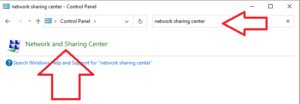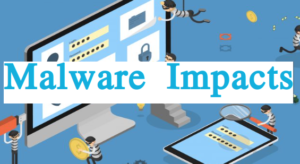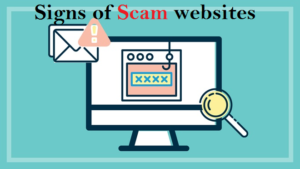How To Remove .opqz file virus And Restore Infected Data
Proper Guide To Delete .opqz file virus From System
.opqz file virus is a highly dangerous crypto-malware that belongs to the family of Djvu ransomware. As soon as this nasty virus infiltrates your computer, it encrypts your crucial files and data put inside the machine and them asks you to pay the attackers an amount of ransom to get the decryption tool. This pernicious threat uses a very strong encryption algorithm to lock your important files such as videos, audios, images, PDFs, documents etc. and makes you unable to open them again. Data encoded by this ransomware can be easily identified as it appends “.opqz” extension with the name of each of them.
After completing the encryption process, .opqz file virus leaves a ransom note named “_readme.txt” on the desktop and asks you to contact the attackers for more details. Crooks state that in order to regain access to the infected files, you must purchase the decryption software from them. At the end, you might have to pay the criminals an amount of either $490 or $9800 in BitCoins or any other digital currency, depends on how fast you contact the criminals via [email protected] or [email protected] . To prove that the decryption is possible, hackers offer to decrypt one file for free.
Text Presented in The Ransom Note:
ATTENTION!
Don’t worry, you can return all your files!
All your files like photos, databases, documents and other important are encrypted with strongest encryption and unique key.
The only method of recovering files is to purchase decrypt tool and unique key for you.
This software will decrypt all your encrypted files.
What guarantees you have?
You can send one of your encrypted file from your PC and we decrypt it for free.
But we can decrypt only 1 file for free. File must not contain valuable information.
You can get and look video overview decrypt tool:
hxxps://we.tl/t-sBwlEg46JX
Price of private key and decrypt software is $980.
Discount 50% available if you contact us first 72 hours, that’s price for you is $490.
Please note that you’ll never restore your data without payment.
Check your e-mail “Spam” or “Junk” folder if you don’t get answer more than 6 hours.
To get this software you need write on our e-mail:
Reserve e-mail address to contact us:
Your personal ID:
–
Should You Pay the Ransom?
Although, it is true that files encoded by .opqz file virus can’t be accessed without using the decryption tool but still, we strongly deny from making any sort of payment to the hackers. Keep in mind that the only motive of such criminals is to extort illicit revenues from the victimized users; you have absolutely no guarantee that they will deliver the compromised files even after taking the ransom. It has been seen that such types of hackers normally ignore the victims soon after the translation is done or provide bogus application in the name of decryption tool which upon getting installed, only harms the system badly without its malicious activities. And therefore, never trust on the hackers and try to remove .opqz file virus from the computer without wasting any time.
How To Recover Infected Data?
Paying ransom to the criminals is not a clever thing to do under any circumstance as it will only motivate them to drop more infections inside for further revenues. Security experts strongly suggest to keep making regular backups by the help of which, you can easily restore the compromised data in such pernicious situation. However, in the absence of an appropriate backup, use a strong data-recovery program, which you can download right here under this article.
How Does This Crypto-virus Enter Your System:
Such types of file-encoding threats are spread on the targeted machine through a number of tricky methods. Most of times, their creators make users download the infection themselves on their devices. One of the most used tactic of doing this to send spam email pretending to be coming from genuine company or service. When you open such mails, the malicious attachment gets triggered and then the malware automatically get downloaded and installed. Apart from this, clicking on malicious ads or links, visiting harmful web pages, sharing peer to peer network, downloading freeware programs from unreliable sources can be also responsible for the intrusion of .opqz file virus and other Crypto-viruses in the systems. And therefore, it is necessary to stay away from these vicious sources to keep the PC harmless and secured. Ignore suspicious emails coming from unknown source as you never know what they are containing.
Threat Details
Name: .opqz file virus
Type: Ransomware, Crypto-virus
Description- Destructive malware that aims to encrypt users’ crucial files and then ask them to pay off for the decryption key/tool.
Extension- .opqz
Ransom demanding message: _readme.txt
Attackers’ Contact- [email protected], [email protected]
Symptoms: Users can not open files available on their desktop, previously functional files now have different extensions, A ransom demanding message is displayed on the desktop screen. Users are asked to pay an amount of ransom to unlock their encoded data and files.
Distribution methods: Torrent websites, spam emails, peer to peer network sharing, unofficial activation and updating tools.
Damage: All files are encrypted and cannot be accessed without paying ransom, Additional password stealing Trojans and malware infections can be installed along with ransomware infections and other malware.
Removal: To remove this virus from the system, we advise you to use a reliable anti-malware tool. Once malware gets removed, you can recover your files by using existing backup or data-recovery software.
Other Malevolent Traits of .opqz file virus:
This pernicious malware disables the working of all the running security measures and Windows Firewalls and opens backdoors for more notorious infections. It may easily bring other Online parasites such as adware, worms, spyware, rootkits, trojans etc. in your computer and turn the device into a malware-hub. Initially after getting installed, it makes spiteful entries in Windows registries and changes its default settings which allows the virus to get automatically activated with each Window reboot. It messes with vital system files that are essential for smooth computer processing and prevents many installed apps as well as drivers from working in an appropriate manner. And therefore, to prevent all these hazards from being occurred, you must remove .opqz file virus from the machine as soon as possible.
Special Offer (For Windows)
.opqz file virus can be creepy computer infection that may regain its presence again and again as it keeps its files hidden on computers. To accomplish a hassle free removal of this malware, we suggest you take a try with a powerful Spyhunter antimalware scanner to check if the program can help you getting rid of this virus.
Do make sure to read SpyHunter’s EULA, Threat Assessment Criteria, and Privacy Policy. Spyhunter free scanner downloaded just scans and detect present threats from computers and can remove them as well once, however it requires you to wiat for next 48 hours. If you intend to remove detected therats instantly, then you will have to buy its licenses version that will activate the software fully.
Data Recovery Offer
We Suggest you to choose your lately created backup files in order to restore your encrypted files, however in case if you don’t have any such backups, you can try a data recovery tool to check if you can restore your lost data.
Antimalware Details And User Guide
Step 1: Remove .opqz file virus through “Safe Mode with Networking”
Step 2: Delete .opqz file virus using “System Restore”
Step 1: Remove .opqz file virus through “Safe Mode with Networking”
For Windows XP and Windows 7 users: Boot the PC in “Safe Mode”. Click on “Start” option and continuously press on F8 during the start process until the “Windows Advanced Option” menu appears on the screen. Choose “Safe Mode with Networking” from the list.

Now, a windows homescreen appears on the desktop and work-station is now working on “Safe mode with networking”.
For Windows 8 Users: Go to the “Start Screen”. In the search results select settings, type “Advanced”. In the “General PC Settings” option, choose “Advanced startup” option. Again, click on the “Restart Now” option. The work-station boots to “Advanced Startup Option Menu”. Press on “Troubleshoot” and then “Advanced options” button. In the “Advanced Option Screen”, press on “Startup Settings”. Again, click on “Restart” button. The work-station will now restart in to the “Startup Setting” screen. Next is to press F5 to boot in Safe Mode in Networking.

For Windows 10 Users: Press on Windows logo and on the “Power” icon. In the newly opened menu, choose “Restart” while continuously holding “Shift” button on the keyboard. In the new open “Choose an option” window, click on “Troubleshoot” and then on the “Advanced Options”. Select “Startup Settings” and press on “Restart”. In the next window, click on “F5” button on the key-board.

Step 2: Delete .opqz file virus using “System Restore”
Log-in to the account infected with .opqz file virus. Open the browser and download a legitimate anti-malware tool. Do a full System scanning. Remove all the malicious detected entries.
Special Offer (For Windows)
.opqz file virus can be creepy computer infection that may regain its presence again and again as it keeps its files hidden on computers. To accomplish a hassle free removal of this malware, we suggest you take a try with a powerful Spyhunter antimalware scanner to check if the program can help you getting rid of this virus.
Do make sure to read SpyHunter’s EULA, Threat Assessment Criteria, and Privacy Policy. Spyhunter free scanner downloaded just scans and detect present threats from computers and can remove them as well once, however it requires you to wiat for next 48 hours. If you intend to remove detected therats instantly, then you will have to buy its licenses version that will activate the software fully.
Data Recovery Offer
We Suggest you to choose your lately created backup files in order to restore your encrypted files, however in case if you don’t have any such backups, you can try a data recovery tool to check if you can restore your lost data.
In case if you cannot start the PC in “Safe Mode with Networking”, Try using “System Restore”
- During the “Startup”, continuously press on F8 key until the “Advanced Option” menu appears. From the list, choose “Safe Mode with Command Prompt” and then press “Enter”

- In the new opened command prompt, enter “cd restore” and then press “Enter”.

- Type: rstrui.exe and Press “ENTER”

- Click “Next” on the new windows

- Choose any of the “Restore Points” and click on “Next”. (This step will restore the work-station to its earlier time and date prior to .opqz file virus infiltration in the PC.

- In the newly opened windows, press on “Yes”.

Once your PC gets restored to its previous date and time, download the recommended anti-malware tool and perform a deep scanning in order to remove .opqz file virus files if they left in the work-station.
In order to restore the each (separate) file by this ransomware, use “Windows Previous Version” feature. This method is effective when “System Restore Function” is enabled in the work-station.
Important Note: Some variants of .opqz file virus delete the “Shadow Volume Copies” as well hence this feature may not work all the time and is applicable for selective computers only.
How to Restore Individual Encrypted File:
In order to restore a single file, right click on it and go to “Properties”. Select “Previous Version” tab. Select a “Restore Point” and click on “Restore” option.

In order to access the files encrypted by .opqz file virus, you can also try using “Shadow Explorer”. In order to get more information on this application, press here.

Important: Data Encryption Ransomware are highly dangerous and it is always better that you take precautions to avoid its attack on your work-station. It is advised to use a powerful anti-malware tool in order to get protection in real-time. With this help of “SpyHunter”, “group policy objects” are implanted in the registries in order to block harmful infections like .opqz file virus.
Also, In Windows 10, you get a very unique feature called “Fall Creators Update” that offer “Controlled Folder Access” feature in order to block any kind of encryption to the files. With the help of this feature, any files stored in the locations such as “Documents”, “Pictures”, “Music”, “Videos”, “Favorites” and “Desktop” folders are safe by default.

It is very important that you install this “Windows 10 Fall Creators Update” in your PC to protect your important files and data from ransomware encryption. The more information on how to get this update and add an additional protection form rnasomware attack has been discussed here.
How to Recover the Files Encrypted by .opqz file virus?
Till now, you would have understood that what had happed to your personal files that got encrypted and how you can remove the scripts and payloads associated with .opqz file virus in order to protect your personal files that has not been damaged or encrypted until now. In order to retrieve the locked files, the depth information related to “System Restore” and “Shadow Volume Copies” has already been discussed earlier. However, in case if you are still unable to access the encrypted files then you can try using a data recovery tool.
Use of Data Recovery Tool
This step is for all those victims who have already tries all the above mentioned process but didn’t find any solution. Also it is important that you are able to access the PC and can install any software. The data recovery tool works on the basis of System scanning and recovery algorithm. It searches the System partitions in order to locate the original files which were deleted, corrupted or damaged by the malware. Remember that you must not re-install the Windows OS otherwise the “previous” copies will get deleted permanently. You have to clean the work-station at first and remove .opqz file virus infection. Leave the locked files as it is and follow the steps mentioned below.
Step1: Download the software in the work-station by clicking on the “Download” button below.
Step2: Execute the installer by clicking on downloaded files.
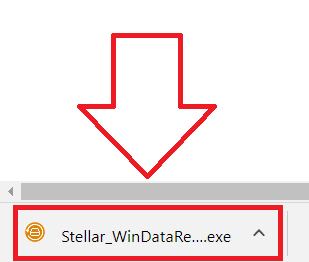
Step3: A license agreement page appears on the screen. Click on “Accept” to agree with its terms and use. Follow the on-screen instruction as mentioned and click on “Finish” button.

Step4: Once the installation gets completed, the program gets executed automatically. In the newly opened interface, select the file types that you want to recover and click on “Next”.

Step5: You can select the “Drives” on which you want the software to run and execute the recovery process. Next is to click on the “Scan” button.
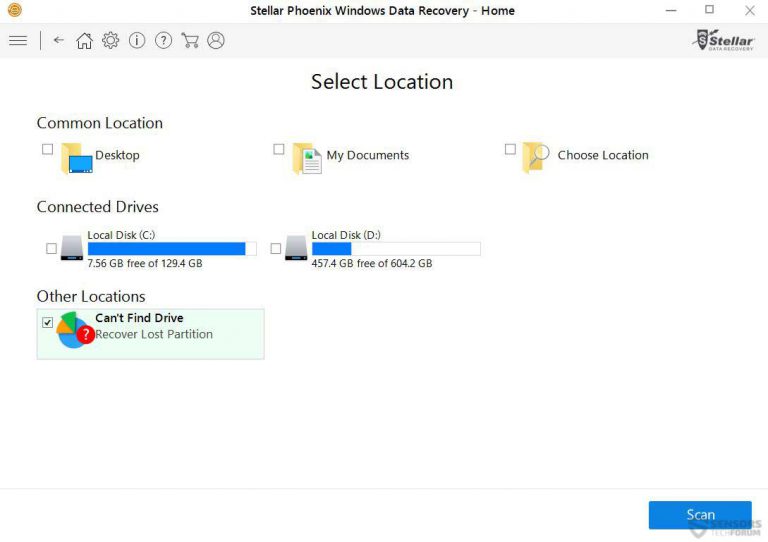
Step6: Based on drive you select for scanning, the restore process begins. The whole process may take time depending on the volume of the selected drive and number of files. Once the process gets completed, a data explorer appears on the screen with preview of that data that is to be recovered. Select the files that you want to restore.

Step7. Next is to locate the location where you want to saver the recovered files.

Special Offer (For Windows)
.opqz file virus can be creepy computer infection that may regain its presence again and again as it keeps its files hidden on computers. To accomplish a hassle free removal of this malware, we suggest you take a try with a powerful Spyhunter antimalware scanner to check if the program can help you getting rid of this virus.
Do make sure to read SpyHunter’s EULA, Threat Assessment Criteria, and Privacy Policy. Spyhunter free scanner downloaded just scans and detect present threats from computers and can remove them as well once, however it requires you to wiat for next 48 hours. If you intend to remove detected therats instantly, then you will have to buy its licenses version that will activate the software fully.
Data Recovery Offer
We Suggest you to choose your lately created backup files in order to restore your encrypted files, however in case if you don’t have any such backups, you can try a data recovery tool to check if you can restore your lost data.


